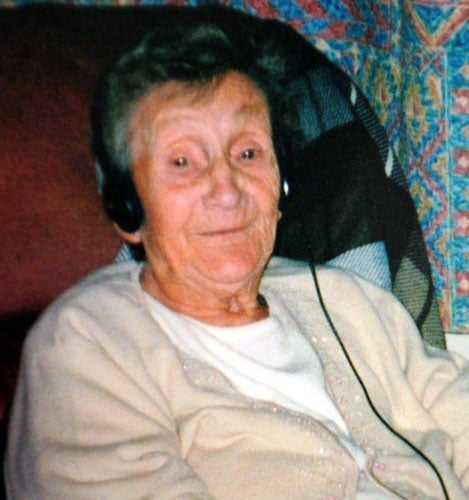The hospital of death
'Appalling' care may have led to hundreds of deaths

Warning signs of poor practice in hospitals across the country are to be urgently reviewed after an investigation uncovered "appalling" standards of care at one hospital which may have led to hundreds of deaths.
The scandal was exposed after monitoring of mortality rates showed that Stafford Hospital, in the West Midlands, had between 400 and 1,200 more deaths than the national average in the three years to 2007-08.
The board of Mid-Staffordshire NHS Trust failed to respond to the warning thrown up by its high death rate, saying there was a problem with the data. It spent more time discussing laundry bills than the quality of patient care.
Now experts are to check the early warning systems for identifying problems in every NHS hospital to ensure there is no repeat of the disaster.
The mortality figures at Stafford triggered an investigation by the Healthcare Commission, the NHS inspectorate, which uncovered deficiencies at "virtually every stage" in the care of emergency patients.
One patient who later died was left for three days with a fractured thighbone. Another who died after becoming infected with the hospital bug C. difficile was earlier left in a soiled bed for four hours but an internal inquiry found there were "no care issues".
Sir Ian Kennedy, the commission chairman, said: "This is a story of appalling standards of care and chaotic systems for looking after patients. Those are words I have not previously used in commenting on any report. There is no doubt that patients will have suffered and some of them will have died as a result." It was impossible to know how many of the excess deaths were due to sub-standard care, he said.
The 382-bed hospital was so short of nurses that receptionists with no medical qualifications were assessing patients as they arrived at A&E and nurses did not know how to operate heart monitors. There were not enough doctors and nurses, vital equipment was unavailable when needed and there was no system to spot when things were going wrong.
Sir Bruce Keogh, the NHS medical director for England, said the management board was guilty of a "gross and terrible breach of trust" and had an "unacceptably casual approach to assessing its own performance".
The high death rate at the hospital, which ranged between 27 per cent and 45 per cent above average, dates back to at least the year 2000, implying that poor care could have contributed to the deaths of thousands of patients, and raising questions about why the problems were not picked up sooner.
Patient groups in Stafford have been campaigning for an inquiry into the hospital for years. When the commission announced its investigation, there was an unprecedented public response – 103 patients and relatives contacted the inspectorate, most of whom were highly critical of the hospital.
Neither the West Midlands Strategic Health Authority, formerly run by England's NHS chief executive, David Nicholson, nor the south Staffordshire Primary Care Trust raised concerns about the hospital. The trust successfully applied for foundation status while the investigation was under way, to the astonishment of the Healthcare Commission. Foundation trusts are the flagships of the NHS, overseen by the regulator, Monitor, which failed to consult the commission.
The hospital board was so focused on hitting financial and performance targets to achieve foundation status that it ignored issues of patient safety.
The chairman, Toni Brisby, and chief executive, Martin Yeates, resigned this month. The trust said yesterday it had suspended Mr Yeates "whilst an inquiry takes place into his leadership".
The Health Secretary, Alan Johnson, apologised for the failings and announced a review of the A&E service at Stafford Hospital, a second review of the standards of treatment between 2002 and 2007 (before the Healthcare Commission began its investigation) and a third review by the National Quality Board of the "early warning system for clinical underperformance" to ensure it is "working effectively across the whole of the NHS".
Mr Johnson said: "On behalf of the Government and the NHS I would like to apologise to the patients and families of patients who have suffered because of the poor standards of care at Stafford Hospital. There was a complete failure of management to address serious problems and monitor performance. This led to a totally unacceptable failure to treat emergency patients safely and with dignity."
A health department spokeswoman said the aim of the National Quality Board review was to "align" the alert systems used by different NHS organisations to ensure information was shared and they had the "most effective way of recognising problems".
The trust also apologised to patients and said staffing levels had been increased and the mortality rate was now 11 per cent below the national average.
Distraught daughter: 'We saw patients drinking out of flower vases'
Julie Bailey spent 14 months campaigning for an inquiry into Stafford Hospital following the death of her mother, Bella Bailey, in November 2007. Ms Bailey, 47, from Stafford, was so concerned about the standards of care being given to her 86-year-old mother that she and her relatives slept in a chair at her hospital bedside for eight weeks.
"What we saw in those eight weeks will haunt us for the rest of our lives," she said. "We saw patients drinking out of flower vases they were so thirsty. There were patients wandering around the hospital and patients fighting. It was continuous through the night. Patients were screaming out in pain because you just could not get pain relief. They would fall out of bed and we would have to go hunting for staff. There was such a lack of staff.
"It was like a Third World country hospital. It was an absolute disgrace."
Join our commenting forum
Join thought-provoking conversations, follow other Independent readers and see their replies
Comments
Bookmark popover
Removed from bookmarks